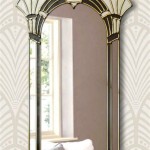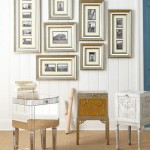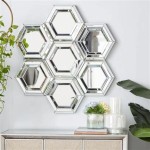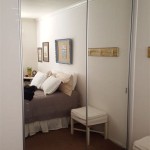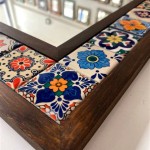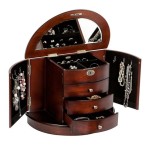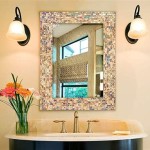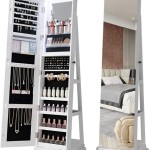Mirrors on Doors: Superstition and Significance
The placement of mirrors holds significant weight in various cultures and belief systems, often intertwined with superstition and tradition. Among these beliefs, the placement of mirrors on doors carries a particularly complex set of interpretations, ranging from auspicious symbols of protection to warnings of misfortune.
One prominent interpretation of mirrors placed on doors revolves around the concept of reflecting negative energy. In some cultures, doors are considered portals, not only for physical entry and exit but also for spiritual energies. A mirror placed on the door is believed to deflect any negative energy or malevolent spirits attempting to enter, effectively acting as a protective barrier.
This protective quality extends to the reflection of bad luck or ill fortune. Similar to deflecting negative spirits, the mirror is thought to repel misfortune directed towards the inhabitants of the dwelling. This belief often stems from the idea that mirrors can reverse or redirect energy, thus sending any incoming negativity back to its source.
Conversely, certain traditions hold a contrasting view of mirrors on doors. In Feng Shui, for instance, placing a mirror directly facing the main entrance is considered inauspicious. The belief is that such placement can reflect positive energy and opportunities away from the home, hindering the flow of good fortune and prosperity.
This negative connotation also relates to the mirror's reflective properties. Some believe that placing a mirror on a door can reflect the inhabitants' own energy back at them, leading to stagnation and a sense of being trapped. This can potentially disrupt the harmonious flow of energy within the home, causing imbalances and disharmony.
The size and shape of the mirror can also play a role in these interpretations. Small, fragmented mirrors are generally viewed less favorably than large, whole mirrors. The former are thought to fragment the reflection of the self, potentially leading to a fractured sense of identity and well-being. Larger, whole mirrors, on the other hand, are seen as offering a more complete and unified reflection, thus promoting a sense of wholeness and stability.
The specific location of the door on which the mirror is placed can also influence the interpretation. For instance, a mirror on a bedroom door might be viewed differently than a mirror on the front door. Bedrooms are considered spaces of rest and vulnerability, and placing a mirror on the door could potentially disrupt sleep or amplify negative emotions.
Beyond the spiritual and superstitious interpretations, practical considerations also influenced the placement of mirrors on doors. Historically, before the widespread availability of dedicated mirrors, placing them on doors maximized limited space and offered a convenient location for checking one's appearance before leaving the house.
In smaller dwellings, mirrors on doors can create an illusion of spaciousness, making the area appear larger and more open. This practical application remains relevant in modern interior design, where mirrors are strategically used to enhance the perception of space and light.
Furthermore, the decorative aspect of mirrors cannot be overlooked. Elaborately framed or intricately designed mirrors can serve as aesthetically pleasing elements, enhancing the overall visual appeal of a door and the surrounding space.
The specific cultural context plays a significant role in the interpretation of mirrors on doors. Different cultures hold varying beliefs and traditions related to mirrors, influencing whether their placement on doors is viewed as positive or negative. Understanding these cultural nuances is essential for a comprehensive understanding of the symbolism associated with mirrors on doors.
Over time, the interpretations surrounding mirrors on doors have evolved and intertwined, blending traditional beliefs with practical considerations. While superstitions regarding their placement persist, the use of mirrors on doors has also adapted to accommodate functional and aesthetic purposes in contemporary interiors.
The varied interpretations of mirrors on doors reflect the complex interplay of superstition, practicality, and cultural significance. Whether viewed as protective talismans, disruptors of energy, or simply functional and decorative elements, their presence continues to evoke a range of beliefs and interpretations across different cultures and traditions.
The ongoing discourse surrounding mirrors on doors demonstrates the enduring power of traditional beliefs in shaping our perceptions of the built environment. Whether one adheres to the superstitions or dismisses them as mere folklore, the placement of mirrors on doors continues to hold symbolic meaning and practical value in contemporary society.
Is A Mirror Facing The Door Bad Quora

21 Feng Shui Mirror Placement Rules And Tips For Your Home Fengshuinexus

Three Mirror Superstitions Murray Glass

Home Superstitions Pardee Properties

The Truth About Two Mirrors Facing Each Other Separating Fact From Myth

The Many Meanings Of Breaking A Mirror Superstition And Symbolism

Feng Shui Mirror On Door Tiktok Search

Broken Mirror Superstition Glass West

28 Superstitious Taboos Wofs Com
I M Moving Into A House That Has Full Size Mirrors On The Cupboard Door Sliders Don T Particularly Want To See Myself In Them Constantly What Are Some Ways Can Fully

